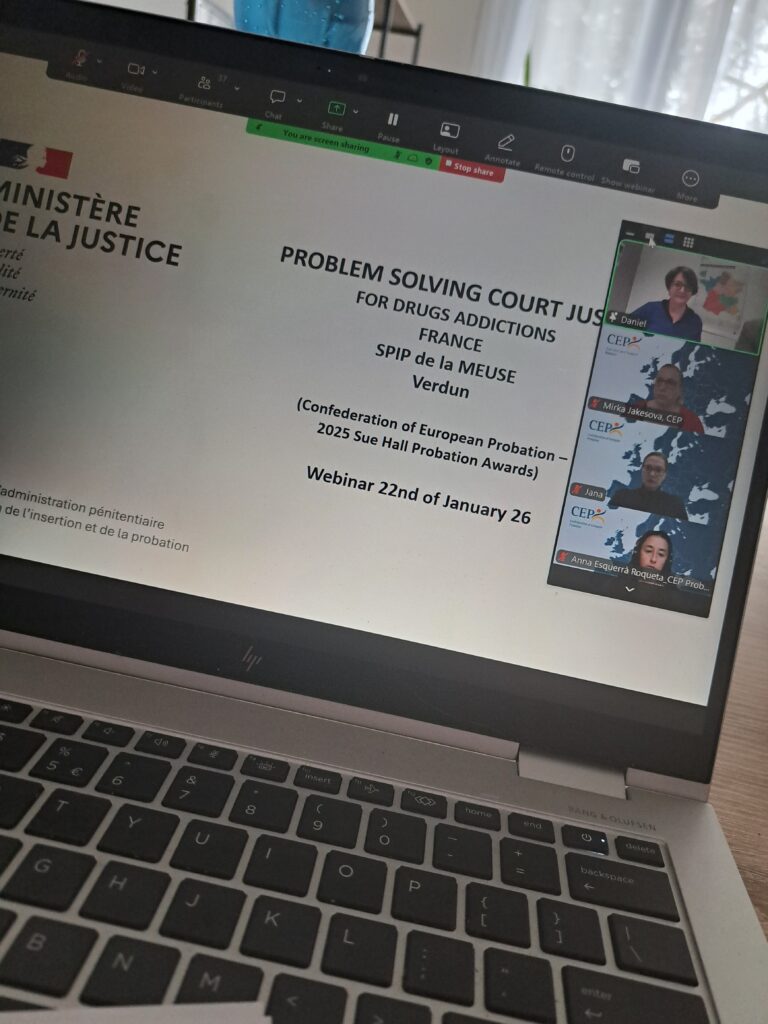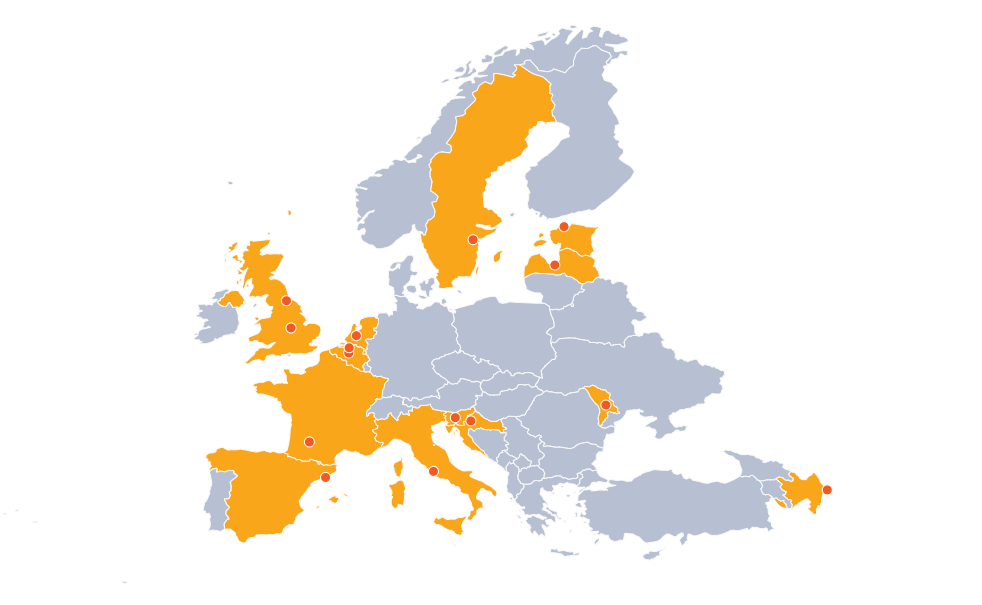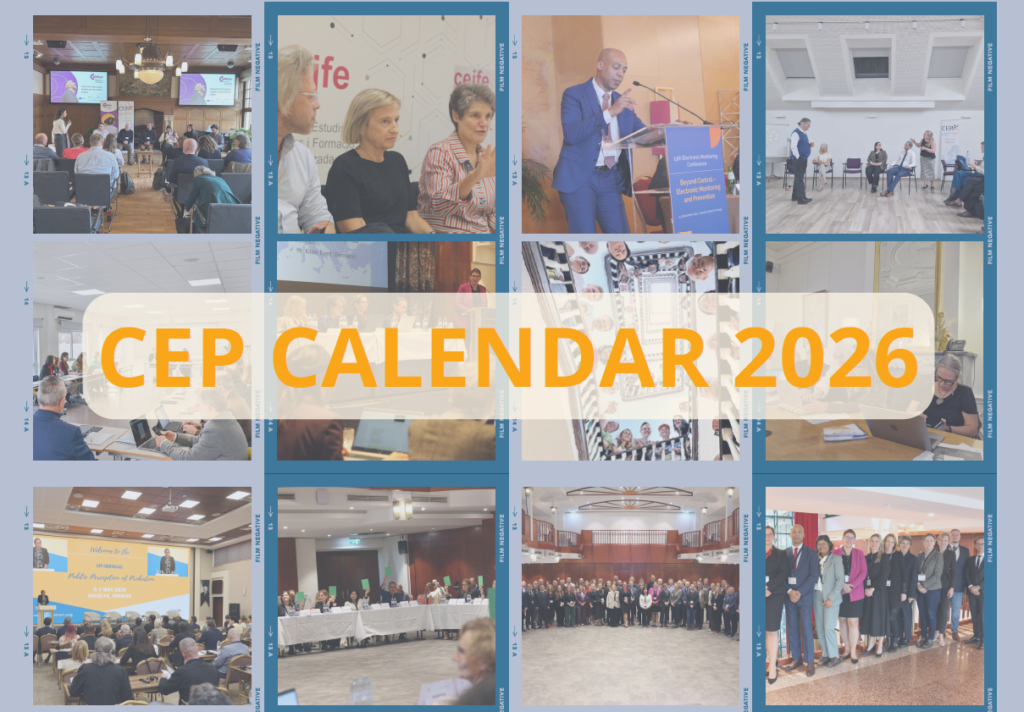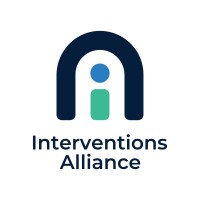Previous Article
News
“The Role of Mentoring in Desistance and Reentry”; an interview with José Cid
Rates of recidivism in Spain are higher for inmates that are released at the end of their prison sentence than for those that are released with a gradual transition to the community. During the EUROCRIM Conference 2018, José Cid presented his research “The Transition From Prison to Community: the Role of Mentoring in Desistance and Reentry”. Afterwards, we asked him some questions about his research.
What is the research about?
The research is a social experiment about the impact of mentors on desistance and resettlement. In Spain approximately 60 percent of the persons that are serving a prison sentence are released after having served the full sentence with no supervision in the period of transition into the community. The research is focused on these prisoners and provides them with a mentor during the time of one year (four months in prison and eight months in the community). One part of the group, 127 participants, participated without receiving the help of a mentor and the other part of the group, 118 did have a mentor. The results of both groups are compared in the research.
How did you conduct the research?
The research is based on a partnership between the Catalan Ministry of Justice (that granted access to prisons and provided the training of mentors); 8 non-profit organisations (that provided the mentors and one coordinator) and research teams from two universities (University of Barcelona, led by prof. Antonio Andrés-Pueyo) and Autonomous University of Barcelona, led by me), that planned the research, directed the execution of the research and evaluated the results.
We have conducted two follow-up meetings. One after two months in freedom and the second one after eight months in freedom. We have also obtained administrative data on reincarceration in the first year after release. The mentor was also required to write a diary after every mentoring session. We have reviewed these field diaries as well.
What is the difference between a mentor and a probation officer?
The main difference is that this is a voluntary reintegration programme, participants have no obligation and are not rewarded in any way for taking part in the project. The supervision aspect is not present and the mentor is a normal citizen, not a rehabilitation professional. However, some aspects may be similar. The probation officer and the mentor need to create a good bond with the participant and they also have common aims: to promote a desistance narrative and to help with resettlement problems.
What does a mentor do?
Every two weeks, mentors have a meeting with the participants (in the prison or in the community). Both the participant and the mentor need to agree on what the mentor needs to do to promote successful desistance. The mentors receive guidelines. The main principle of the guideline is that the mentor should create a good bond with the participant.
Can the mentors help with desistance from crime?
We think the mentor may have a good influence. He or she is providing voluntary support to another person and this support is aimed at promoting conventionality. Social support theory is a ground for expecting good results regarding mentoring: mentors may reduce the strain of participants, reduce labelling and promote feelings of reciprocity.
What is your most important finding?
We are now evaluating the results. Our preliminary results indicate that participants have increased their desistance narrative and have reduced their offending compared with the participants without mentor. These results are preliminary and should be contrasted in the following months
The research report is not available yet, but is expected in the beginning of 2019.

Related News
Keep up to date with the latest developments, stories, and updates on probation from across Europe and beyond. Find relevant news and insights shaping the field today.
New

Alternatives to pre-trial detention, Community Sanctions and Measures, Framework Decisions, Technology
Future of Criminal Justice: CEP’s Contribution to Key 2025 Dialogues
27/01/2026
Throughout 2025, CEP and its representatives actively participated in the online Technical meetings ahead of the HLF as well as the High Level Forum on Future of Criminal Justice taking place on 4-5 March 2025, 20-21 May 2025 and 1-2 October 2025 in Brussels, Belgium.
Recap

Alternatives to pre-trial detention
Recap: Webinar on Alternatives to Detention 2026
26/01/2026
On Thursday 22 January, CEP hosted the first webinar of 2025 on the topic of Alternatives to Detention. The session led by Ms. Marina Pajoni from the French Prison and Probation Service titled „Problem Solving Justice in Pracitce: The Meuse Probation Service´s Approach to Drug Addiction“ introduced an innovative programme developed by the Meuse Probation Service in close cooperation with the French Ministry of Justice.
New

Education and Training
CEP launches an interactive European map of probation education and training institution contacts
22/01/2026
The CEP is pleased to inform its members that a new dedicated section has been developed on the CEP website featuring an interactive map of Europe.
New

CEP Events
CEP activity calendar 2026
20/01/2026
As we begin the new year, we would like to thank all CEP members, partners, and participants for your continued engagement and valuable contributions. Your involvement plays an essential role in shaping CEP’s work and activities.
We are pleased to share the CEP calendar for 2026, which provides an overview of the events planned for the year ahead. We look forward to continuing our collaboration and welcoming you to upcoming CEP activities throughout the year.
Thank you for being part of the CEP community.
New

CEP members, Gender-based violence
Interventions Alliance’s Eden House Recognized as Outstanding
15/01/2026
CEP is delighted to share that Eden House, an Interventions Alliance residential service for women with high-risk or complex needs on probation, has been rated “Outstanding” overall by HM Inspectorate of Probation. In 2022, Eden House was honored with the CEP Public Protection Award. Our sincere congratulations to the team for this remarkable achievement.
New

Education and Training
The Judicial Training Dashboard
14/01/2026
The European Training Platform (ETP) is a search tool for justice professionals. You can find self-learning materials on a great variety of EU law practice areas and related topics, as well as links to training providers’ homepages and course catalogues.
Subscribe to our bi-monthly email newsletter!
"*" indicates required fields
- Keep up to date with important probation developments and insights.

